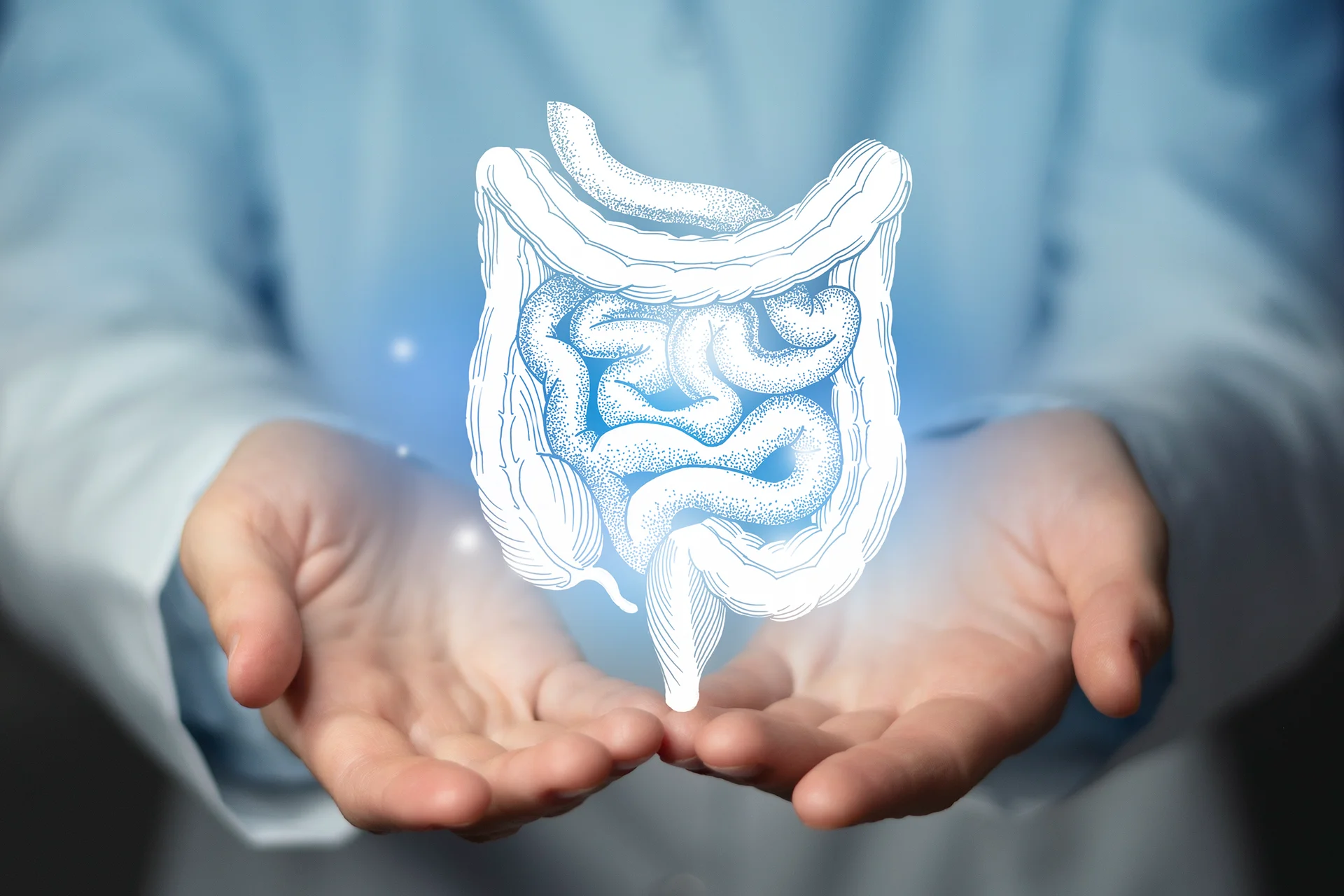Discover Why Low DAO Enzyme Levels Increase Your Risk
Do you often experience digestive discomfort after meals, such as bloating, gas, or constipation? If so, you may have small intestinal bacterial overgrowth (SIBO).
Millions of people around the world suffer from various digestive issues. Some of these are due to a lack of DAO enzymes in the body. When the body lacks DAO, histamine levels can build up and lead to various symptoms, including those associated with SIBO.
In this article, we’ll explore what DAO enzymes are, how it works, and why it’s essential to fight SIBO. Whether you’re struggling with SIBO or simply want to learn more about the importance of DAO enzymes, keep reading!
SIBO: What It Is and Its Causes
SIBO occurs when there is an overgrowth of bacteria in the small intestine which causes bloating, gas, constipation, and diarrhea.
SIBO can be caused by various factors, including:
| Causes | Descriptions |
| Impaired gut motility | Small intestine dysmotility can cause waste to be retained for too long in the small intestine causing bacteria to continue to multiply. |
| Structural issues in the gut | This can include things like adhesions, scar tissue, or other conditions that affect the structure of the small intestine. |
| Low stomach acid | Stomach acid helps to kill off bacteria in the gut. A deficient stomach acid can lead to an overgrowth of bacteria. |
| Use of antibiotics | Antibiotics can disrupt the balance of bacteria in the gut, leading to an overgrowth of harmful bacteria. |
| Digestive disorders | Conditions such as Irritable Bowel Syndrome (IBS), Crohn’s disease, and celiac disease can increase the risk of developing SIBO. |
| Food poisoning | Certain types of food poisoning can damage the lining of the small intestine, leading to an increased risk of SIBO. |
| Immune system dysfunction | In some cases, immune system dysfunction can lead to an overgrowth of bacteria in the small intestine. |
DAO and its Role in the Body
Diamine Oxidase (DAO) is an enzyme that is produced by the body. Its main role is to break down histamine. When the body lacks DAO enzymes, histamine levels can build up and cause various symptoms such as headaches, allergies, and digestive issues.
What Causes a Lack of DAO Enzyme?
There are various factors that can lead to a lack of DAO enzymes in the body. These include:
| Causes | Descriptions |
| Genetics | Some people may have a genetic predisposition to low DAO enzyme levels. |
| Dietary factors | Consuming foods that are high in histamine or that block DAO production, such as alcohol, can contribute to a lack of DAO enzymes. |
| Gut inflammation | Inflammation in the gut can reduce the production of DAO enzymes. |
| Medications | Certain medications, such as nonsteroidal anti-inflammatory drugs (NSAIDs) and proton pump inhibitors (PPIs), can interfere with DAO enzyme production. |
| Hormonal imbalances | Hormonal imbalances, such as those associated with menopause or thyroid dysfunction, can affect DAO enzyme production. |
The Connection Between DAO Enzyme and SIBO
Studies have shown that DAO enzyme deficiency can lead to an increased risk of SIBO. This is due to the involvement of histamine in the regulation of gut motility, affecting the movement of food through the small intestine. When there is not enough DAO enzyme, histamine levels can increase, leading to a disruption in gut motility and an overgrowth of bacteria in the small intestine.
Symptoms of SIBO
The symptoms of SIBO can vary from person to person. Some common symptoms include:
- Bloating
- Abdominal pain
- Gas
- Constipation
- Diarrhea
- Nausea
- Malabsorption
- Fatigue
- Joint pain
How to Test for SIBO

It’s important to get an accurate diagnosis from a healthcare professional if you are experiencing symptoms of SIBO. There are several tests that can be used to diagnose SIBO, including:
Breath test
A breath test is the most common way to diagnose SIBO. This test involves drinking a solution containing a specific type of sugar and then measuring the levels of hydrogen and methane gas in your breath over a period of several hours. If there are high levels of gas present, it may indicate the presence of SIBO.
Stool test
A stool test can be used to detect the presence of bacterial overgrowth in the small intestine.
Endoscopy
In some cases, an endoscopy may be used to visualize the small intestine and take a tissue sample for analysis.
Treatment Options for SIBO
There are three treatment options for SIBO that you can try. They are:
1. Antibiotics are often used to kill the overgrowth of bacteria in the small intestine.
2. Probiotics can help to restore the balance of gut bacteria.
3. Dietary changes including reduction of sugar and carbohydrate intake can also help to prevent the growth of bacteria in the small intestine.
Diet and Lifestyle Changes to Prevent SIBO
Making certain diet and lifestyle changes can help prevent SIBO. These include:
- Eating a diet low in sugar and carbohydrates
- Increasing fiber intake
- Eating fermented foods
- Drinking bone broth
- Reducing stress levels through activities such as yoga or meditation
- Avoiding unnecessary antibiotic use
Supplements to Boost DAO Enzyme Levels
There are various supplements that can help boost DAO enzyme levels in the body. These include:
- Vitamin B6
- Copper
- Zinc
- Magnesium
- Quercetin
- N-acetylcysteine
It is important to speak with a healthcare professional before starting any new supplements.
DAO Supplementations
DAO supplements can help to regulate histamine levels and support healthy digestion, making them an important addition to any digestive health regimen. For your DAO supplement needs, visit SeeBeyond Shop for our DAO-HIST supplement today!
Conclusion
SIBO is a condition that can cause various digestive issues. A lack of DAO enzyme in the body has been linked to an increased risk of SIBO. Making certain lifestyle changes such as maintaining a healthy diet and reducing stress levels can help prevent SIBO. Taking supplements can also help boost DAO enzyme levels in the body.
